![Bailey, Derek / Tristan Honsinger: Duo [VINYL] (Honest Jons Records) Bailey, Derek / Tristan Honsinger: Duo [VINYL] (Honest Jons Records)](https://www.teuthida.com/productImages/misc4/25650.jpg)
A proper reissue of the 1976 Incus album from guitarist Derek Bailey and cellist Tristan Honsinger, primarily from a live concert at at Verity's Place in London on February 7, 1976, with two unusual studio recordings punctuating the album, an early example of their long history of collaboration and a great example of their intense, joyful, and truly free improvisation together.
Out of Stock
Quantity in Basket: None
Log In to use our Wish List
Shipping Weight: 24.00 units
Sample The Album:
Derek Bailey-guitar
Tristan Honsinger-cello
Click an artist name above to see in-stock items for that artist.
UPC: 769791969087
Label: Honest Jons Records
Catalog ID: HJR 204LP
Squidco Product Code: 25650
Format: LP
Condition: New
Released: 2018
Country: UK
Packaging: LP
Recorded at Verity's Place on February 7th, 1976, by Bob Woolford, A1 and B2, recorded at Tangent Studio, on Janurary 6th, 1976, by Bob Woolford. Mastered by Rashad Becker. Originally released on the Incus label in 1976 as Incus 20.
"A reissue of Derek Bailey and Tristan Honsinger Duo, originally released by Incus in 1976.
Born in Burlington, Vermont, and conservatory-trained in the US, the cellist Tristan Honsinger moved from Montreal to Amsterdam in 1974, quickly linking with Han Bennink and Misha Mengelberg and opening a long and fruitful musical relationship with Derek Bailey.
Recorded in 1976, Duo displays a performative musical approach already characterized by the lack of inhibition which would later endear him to The Pop Group: he is knockabout, exclamatory, explosively rhythmic; burping Bach and folk melodies with spasmodic lyricism, in amongst the garrulous textures and accents of his scraping, bowing, and plucking, and gibbering like a monkey; throwing out his arms and stamping the floor, grappling with his instrument like an expert clown, always tripping himself up.
You can hear Bailey reveling in the company, as he ranges between scrabbling solidarity and an askance skewering of his partner's antics, on prepared (nineteen-string) and standard electric guitars -- and a Waisvisz Crackle-box, for the garbled, quizzical, cross-species natter which closes "The Shadow". Throughout, the spirited interplay between laconic, analytic wit, and guttural, sometimes slapstick physicality is consistently droll, often laugh-out-loud funny; vigorously alert, alive, and gripping."-Honest Jons Records
"The first time I heard Tristan was when I joined a group of startled listeners surrounding a cello player playing on the street in Massey, a small town a few miles south of Paris. It was about then that I realised had there been no such thing as free improvisation, Tristan Honsinger would have invented it. I was in Massey to play on a concert made up entirely of solo guitar players; a situation obviously leaving a lot of room for improvement. It was to that end that I invited Tristan to play with me on the concert and it was my great fortune that he agreed and we've played together in all kinds of situations since.
[...] Duo, the record we made he following year (Incus LP 20) and date from a time when judicious editing, post production and allied techinical sophistications had not yet entered recorded improvised music, and are issues precisely as we put them out in 1976." - Derek Bailey
Artist Biographies
• Show Bio for Derek Bailey "Derek Bailey (29 January 1930 - 25 December 2005) was an English avant-garde guitarist and leading figure in the free improvisation movement. Bailey was born in Sheffield, England. A third-generation musician, he began playing the guitar at the age of ten, initially studying music with his teacher and Sheffield City organist C. H. C. Biltcliffe, an experience that he did not enjoy, and guitar with his uncle George Wing and John Duarte. As an adult he worked as a guitarist and session musician in clubs, radio, dance hall bands, and so on, playing with many performers including Morecambe and Wise, Gracie Fields, Bob Monkhouse and Kathy Kirby, and on television programs such as Opportunity Knocks. Bailey's earliest foray into 'what could be called free improvised music' was in 1953 with two other guitarists in their shared flat in Glasgow. He was also part of a Sheffield-based trio founded in 1963 with Tony Oxley and Gavin Bryars called "Joseph Holbrooke" (named after the composer, whose work they never actually played). Although originally performing relatively "conventional" modal, harmonic jazz this group became increasingly free in direction. Bailey moved to London in 1966, frequenting the Little Theatre Club run by drummer John Stevens. Here he met many other like-minded musicians, such as saxophonist Evan Parker, trumpet player Kenny Wheeler and double bass player Dave Holland. These players often collaborated under the umbrella name of the Spontaneous Music Ensemble, recording the seminal album Karyobin for Island Records in 1968. In this year Bailey also formed the Music Improvisation Company with Parker, percussionist Jamie Muir and Hugh Davies on homemade electronics, a project that continued until 1971. He was also a member of the Jazz Composer's Orchestra and Iskra 1903, a trio with double-bass player Barry Guy and tromboneist Paul Rutherford that was named after a newspaper published by the Russian revolutionary Vladimir Lenin. In 1970, Bailey founded the record label Incus with Tony Oxley, Evan Parker and Michael Walters. It proved influential as the first musician-owned independent label in the UK. Oxley and Walters left early on; Parker and Bailey continued as co-directors until the mid-1980s, when friction between the men led to Parker's departure. Bailey continued the label with his partner Karen Brookman until his death in 2005[citation needed]. Along with a number of other musicians, Bailey was a co-founder of Musics magazine in 1975. This was described as "an impromental experivisation arts magazine" and circulated through a network of like-minded record shops, arguably becoming one of the most significant jazz publications of the second half of the 1970s, and instrumental in the foundation of the London Musicians Collective. 1976 saw Bailey instigate Company, an ever-changing collection of like-minded improvisors, which at various times has included Anthony Braxton, Tristan Honsinger, Misha Mengelberg, Lol Coxhill, Fred Frith, Steve Beresford, Steve Lacy, Johnny Dyani, Leo Smith, Han Bennink, Eugene Chadbourne, Henry Kaiser, John Zorn, Buckethead and many others. Company Week, an annual week-long free improvisational festival organised by Bailey, ran until 1994. In 1980, he wrote the book Improvisation: Its Nature and Practice. This was adapted by UK's Channel 4 into a four-part TV series in the early '90s, edited and narrated by Bailey. Bailey died in London on Christmas Day, 2005. He had been suffering from motor neurone disease." ^ Hide Bio for Derek Bailey • Show Bio for Tristan Honsinger "Tristan Honsinger told Kevin Whitehead, 'I grew up in New England, took up cello at age nine in Springfield, Massachusetts... My first teacher was a Dutch Jew. Almost all my teachers were European immigrants. Later I went to the New England Conservatory. It was quite a good school, but I didn't feel very welcome, so I went to Peabody Conservatory in Baltimore from '68 to '69. By then I'd had it, really, with the whole classical music world. I changed teachers so many times, I suppose I was confused by their contradictory advice'. It was after moving to Montreal in 1969 that Honsiner began improvising and, after meeting Dutch percussionist Peter van Ginkel and listening to his copy of Topography of the lungs, decided he could play this music and uprooted to Europe, moving to Amsterdam in 1974: 'They arrested me the first time I played my cello in the street... confiscated our instruments'. As a result, he moved to Paris, travelled around France, eventually finding his way back to Amsterdam where he began playing with Maarten van Regteren Altena, Han Bennink and Misha Mengelberg as well as being involved in Derek Bailey's Company Weeks and playing with Globe Unity. The late '70s and early '80s were spent in Italy with Katie Duck, working with theatre - Duck had her group the Great Salt Lake Mime Troupe - and Italian and Sardinian musicians. During this time, Honsinger started his group This, That and the Other, the early version including Tiziana Simona, Sean Bergin, Toshinori Kondo, Jean-Jacques Avenel and Michael Vatcher which recorded Picnic in Amsterdam in 1985. 'Because of a promoter's brilliant organising, the group kind of fell apart', but there have been fairly regular and recent incarnations, including an appearance at the Italian Angelica Festival in 1996. Since the memorable set of concerts in Berlin in 1988, released on the much sought-after FMP box set, Honsinger has been a fairly regular member of Cecil Taylor's groups. At those concerts, Honsinger performed in a trio with Taylor and Evan Parker as well as being a member of the large European Orchestra but since then he has been a member of various Taylor groups, including the now-disbanded European Quartet with Harri Sjöström and Paul Lovens, including an unusual combination that performed at the Total Music Meeting in November 1999: the Cecil Taylor Ensemble with Franky Douglas, Tristan Honsinger and Andrew Cyrille." ^ Hide Bio for Tristan Honsinger
4/9/2025
Have a better biography or biography source? Please Contact Us so that we can update this biography.
4/9/2025
Have a better biography or biography source? Please Contact Us so that we can update this biography.
Track Listing:
SIDEA
1. The Visit 3:20
2. DUO (Part 1) 4:56
3. DUO (Part 2) 11:28
SIDEA
1. Performance 4:12
2. Preparation 6:24
3. The Shadow 10:36
4. Exits 3:48
Vinyl Recordings
Improvised Music
Free Improvisation
London & UK Improv & Related Scenes
European Improvisation, Composition and Experimental Forms
Stringed Instruments
Guitarists, &c.
Duo Recordings
Bailey, Derek
Jazz Reissues
Staff Picks & Recommended Items
Search for other titles on the label:
Honest Jons Records.


![Bailey, Derek / Tristan Honsinger: Duo [VINYL] (Honest Jons Records) Bailey, Derek / Tristan Honsinger: Duo [VINYL] (Honest Jons Records)](https://www.teuthida.com/productImages/full/25650.Full.jpg)
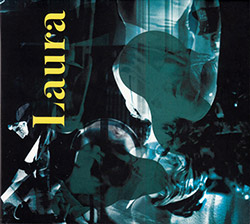
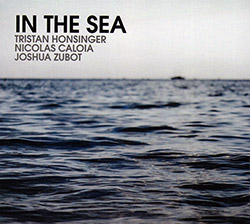

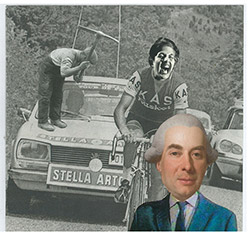




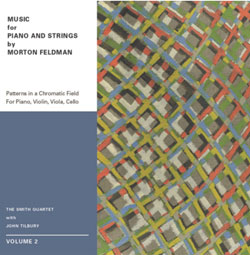
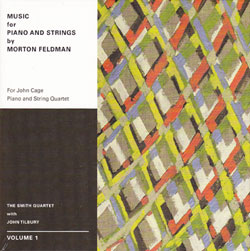
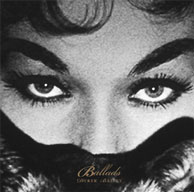



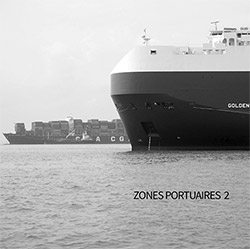
![111 (Michelle / Villamil): Live at Opus 40 [CASSETTE]](https://www.teuthida.com/productImages/misc4/35986.jpg)
![del Pino, Francisco / Charlotte Mundy: The Sea [CASSETTE]](https://www.teuthida.com/productImages/misc4/35987.jpg)

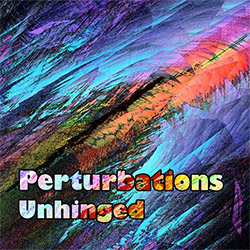

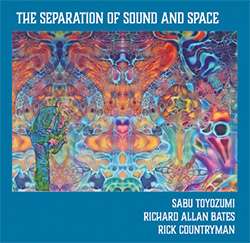
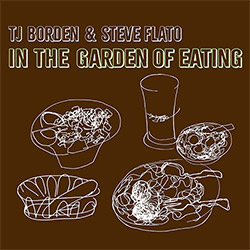

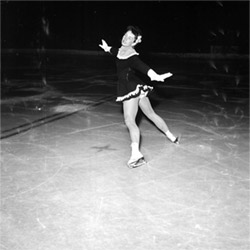
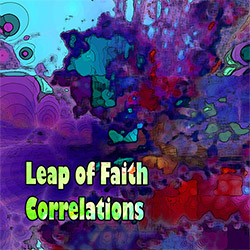

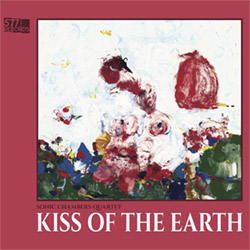

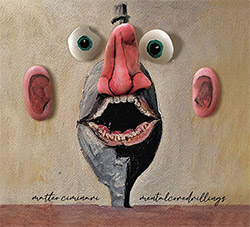
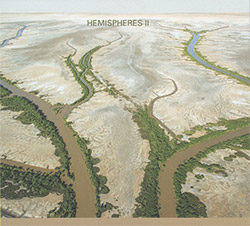
![Niblock, Phill / Anna Clementi / Thomas Stern: Zound Delta 2 [VINYL]](https://www.teuthida.com/productImages/misc4/34623.jpg)
![Yoko, Ono / The Great Learning Orchestra: Selected Recordings From Grapefruit [2 CDs]](https://www.teuthida.com/productImages/misc4/35841.jpg)

![Brotzmann, Peter / John Edwards / Steve Noble / Jason Adasiewicz: The Quartet [2 CDs]](https://www.teuthida.com/productImages/misc4/35975.jpg)
![Brotzmann, Peter / John Edwards / Steve Noble / Jason Adasiewicz: The Quartet [VINYL 2 LPs]](https://www.teuthida.com/productImages/misc4/35976.jpg)
![Thomas, Pat: The Solar Model of Ibn-Al Shatir [VINYL]](https://www.teuthida.com/productImages/misc4/36044.jpg)
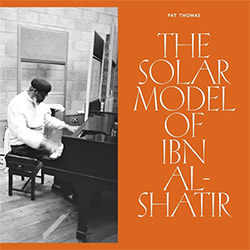



![Rodrigues, Ernesto / Nuno Torres / Guilherme Rodrigues: Whispers In The Moonlight - In Seven Movements [2CDs]](https://www.teuthida.com/productImages/misc4/35765.jpg)



![Cocks, Laura: FATHM [VINYL]](https://www.teuthida.com/productImages/misc4/36055.jpg)













![Schindler, Udo / Sandy Ewen / Damon Smith: Munich Sound Studies Vols. 4, 5 & 6 [3 CDs]](https://www.teuthida.com/productImages/misc4/35966.jpg)
![Turbulence Orchestra & Sub-Units: Smear Out the Difficulties (Double Live) [2 CDs]](https://www.teuthida.com/productImages/misc4/36048.jpg)

![Myers, David Lee : Tin Drop Tear [BOOK w/ DOWNLOAD]](https://www.teuthida.com/productImages/misc4/36030.jpg)

![Ackerley / Prymek / Turner: All Hope With Sleeping Minds [CASSETTE]](https://www.teuthida.com/productImages/misc4/35950.jpg)








![Olencki, Weston : Pearls Ground Down To Powder [VINYL]](https://www.teuthida.com/productImages/misc4/35956.jpg)
![Myers, David Lee: Oculus [2CDs]](https://www.teuthida.com/productImages/misc4/35857.jpg)


![dustsceawung: dustsceawung [CASSETTE w/ Download]](https://www.teuthida.com/productImages/misc4/35753.jpg)




![Halls of the Machine: Atmospheres For Lovers And Sleepers [CASSETTE w/ DOWNLOAD]](https://www.teuthida.com/productImages/misc4/35806.jpg)











![Zorn, John / JACK Quartet: The Complete String Quartets [2 CDs]](https://www.teuthida.com/productImages/misc4/35609.jpg)

![Lonsdale, Eden: Dawnings [2 CDs]](https://www.teuthida.com/productImages/misc4/35480.jpg)







![Sanna, Claudio: Compositori Sardi Contemporanei II [2 CDs]](https://www.teuthida.com/productImages/misc4/35317.jpg)







![Zurria, Manuel: Fame di Vento [3 CDs]](https://www.teuthida.com/productImages/misc4/35167.jpg)

![Electric Bird Noise / Derek Roddy: 8-10-22 [CD EP]](https://www.teuthida.com/productImages/misc4/35970.jpg)








![Elephant9 : Mythical River [VINYL]](https://www.teuthida.com/productImages/misc4/34624.jpg)



![Elephant9 with Terje Rypdal: Catching Fire [VINYL 2 LPs]](https://www.teuthida.com/productImages/misc4/35355.jpg)
![Deerlady (Obomsawin, Mali / Magdalena Abrego): Greatest Hits [VINYL]](https://www.teuthida.com/productImages/misc4/34876.jpg)







![Surplus 1980: Illusion of Consistency [CD]](https://www.teuthida.com/productImages/misc4/35069.jpg)
![Staiano, Moe: Away Towards the Light [VINYL + DOWNLOAD]](https://www.teuthida.com/productImages/misc4/35037.jpg)



![Caveira (Gomes / Sousa / Abras / Ferrandini): Ficar Vivo [VINYL]](https://www.teuthida.com/productImages/misc4/34643.jpg)
![Coley, Byron: Dating Tips for Touring Bands [VINYL]](https://www.teuthida.com/productImages/misc4/17906.jpg)

![Lost Kisses: My Life is Sad & Funny [DVD]](https://www.teuthida.com/productImages/misc4/lostKissesDVD.jpg)